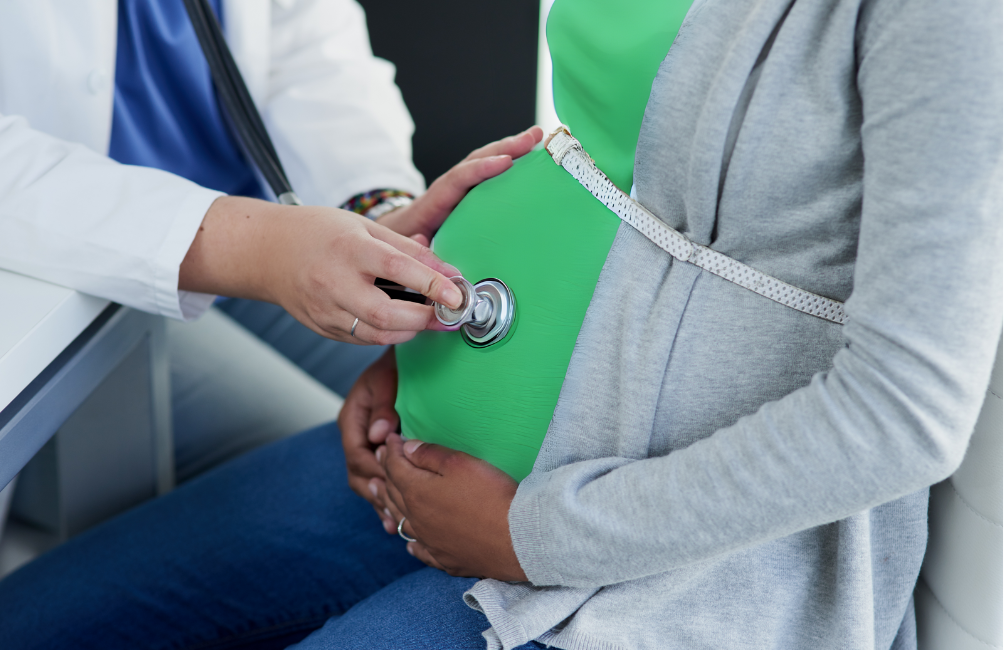Medical Aid and Pregnancy

If you’re pregnant or are planning on having a baby, you probably can’t wait to do the fun stuff, like picking out names and buying cute clothes that you secretly wish came in adult sizes.
But being pregnant is about more than just the fun stuff—there's also the doctor's visits, the blood and glucose tests, the swollen ankles, and the special attachment you develop to the toilet.
When it comes to feet that grow a shoe size or needing to urinate every hour on the hour, there's not much that can be done. But the healthcare costs can be reduced if you're on the right medical aid in South Africa—one that has excellent maternity benefits. The financial strain of those nine months can be a lot to take on for expecting families, so a little help goes a long way in antenatal care.
Many medical schemes offer maternity benefits programmes on their standard plans—some even offer them on medical aid hospital plans! Let's take a look at what you can expect to be covered for on your medical aid plan:
Antenatal Consultations
Most medical aids with excellent maternity benefits will have a specified number of doctor's visits that they'll cover you for, some with and some without scans.

Scans
There are a couple really important scans during pregnancy, two of which are usually conducted by a foetal health specialist. These are the scans at 12 weeks and at 20 weeks, where the foetus is checked in great detail for healthy development and abnormalities. The healthcare professional will look at things like the size of the organs, the spine, the gender, and look out for abnormalities, like clubfoot.
Usually, the medical aid will cover these medical costs up to a certain amount. Because they're usually conducted at specialists, they tend to be a bit more expensive than your general antenatal consultation, so expect to pay in for additional costs.
Pre-Existing Conditions gap
If you have a pre-existing condition that's one of the 271 medical conditions or 26 chronic conditions that form the prescribed minimum benefits (PMBs) in South Africa, and your medical aid scheme is aware of it, you might need to get more tests during your pregnancy than you would normally. This could be for something like hypothyroidism, which is greatly affected by pregnancy hormones and needs to be tested monthly during pregnancy. If you've registered your condition with the medical aid scheme, there should be no problem in claiming for related tests.
Blood and Other Tests
There are a certain number of pregnancy tests you can expect to take during your gestation. Many doctors will call for blood tests right at the beginning of the pregnancy to confirm that you are, in fact, pregnant. Then, around halfway through your pregnancy, you might be asked to take a glucose test to make sure that your glucose levels in your body are normal and not putting your baby at risk.

Private Hospital
Medical aids will cover you for private medical care during the birth of your baby (or babies!). This means they'll foot the hospital costs (like your bed and food expenses, even your newborn baby's formula) and in-hospital medication—all out of your hospital benefit. They'll also pay a specified rate to the doctors who deliver your baby (think the gynae and the paed).
The rate they’ll pay depends on the plan you have. This could be anywhere between 100% and 300%. With this in mind, it’s a good idea to think about taking out gap cover before you fall pregnant. This will pay out for any shortfall between the rate the medical aid pays and the doctor’s bill. Gap cover usually covers up to 500% of the medical aid rate, which is almost always enough to cover any deficit.
In addition, medical aids will pay for natural birth and usually caesarian section, so depending on what your choice or circumstances are here, this will determine which one you'll go with.
Do be aware that they won't always cover every test in the hospital. For example, hearing tests for the baby aren't always covered, and if they are, they might come out of your savings, not your maternity or hospital benefit.
Postnatal Consultations
Often, medical aids will cover postnatal consults for you and the baby, so one paediatrician visit and one visit with the registered healthcare provider of your choice (gynaecologist or midwife, for example) after the baby has been born.
Those nine months of pregnancy, with all the doctor visits or midwife consultations, and all the other private healthcare coverage you need, can quickly add up, which is why it's important to have medical aid to cover you financially.
Also, make sure you're with a medical aid provider that offers you an array of excellent maternity benefits before you fall pregnant, because many of them have a waiting period of a year before those benefits will kick in.
This article is for informational purposes only and should not be construed as financial, legal or medical advice.
Hippo Blog Categories

































